Last vote, it’s the organizing resolution that sets the rules for how the impeachment trial will be conducted.
Senate adopts ground rules for impeachment trial, delaying a decision on witnesses until after much of the proceedings
https://www.washingtonpost.com/politics/republicans-ease-some-restrictions-as-trump-impeachment-trial-kicks-into-gear/2020/01/21/b0514516-3c75-11ea-8872-5df698785a4e_story.html
What the trial rules say
The Senate is expected to pass the resolution dictating the rules for the first phase of the trial, incorporating a few important changes that Mr. McConnell made at the last minute at the behest of some Republican senators, including Susan Collins, a moderate vote who will be crucial to both parties. Here are four of the key provisions.
-
Mr. McConnell gave the House managers and Mr. Trump’s defense team an extra day to argue their cases, meaning both sides will be allowed to split their 24-hour presentations over three days. The initial proposal he circulated gave each side just two days — a time frame that could have pushed testimony into the early morning.
-
The other important alteration was the Senate agreeing automatically — not by vote — to enter the evidence collected by the House impeachment inquiry into the record of the trial, similar to how evidence was handled during President Bill Clinton’s 1999 impeachment trial.
-
After opening statements, senators will have 16 hours total to question the managers and Trump lawyers. They will then have to decide whether they want to consider new evidence at all. If a majority of senators agree to do so, the managers and prosecutors will be allowed to propose and argue for specific witnesses or documents — each of which would require another vote.
-
If the Senate allows either the managers or Mr. Trump’s lawyers to subpoena witnesses, those witnesses would first have to be deposed before being allowed to testify.
What happened away from the Senate floor
The action wasn’t just in the Senate chamber. As the trial got going, there was other news that could influence how the trial plays out this week and next.
Democrats submitted one last batch of paperwork. Just before the trial began, the House managers submitted a final written brief — a 34-page filing that included a point-by-point rebuttal of arguments put forward by Mr. Trump’s lawyers on Monday, and an appeal to senators to convict him.
Senate Democrats called on constituents to flood phone lines. Senator Brian Schatz of Hawaii tweeted the phone number of the Senate switchboard, urging people to call and demand that lawmakers allow new witnesses and evidence to be considered.
A key Republican said he would wait a little while to decide on witnesses. Senator Mitt Romney, who has said he is interested in hearing from John Bolton, Mr. Trump’s former national security adviser, said in a statement Tuesday he would consider a vote to call witnesses only after opening arguments are complete, which, under Mr. McConnell’s plan, could be as soon as next week.
The White House responded angrily to demands that Mr. Cipollone turn over documents. The requests suggested that Mr. Cipollone, the White House counsel, might have conflicts representing the president in a trial that revolved around events in which he played a part. “The idea that the counsel to the president has to turn over protected documents and confidential information is ludicrous,” a White House spokesman said Tuesday.
White House lawyers are preparing for the possibility that witnesses will be allowed. They’re planning contingencies for Mr. Bolton getting called, according to my colleague Maggie Haberman. Objections to his testimony would most likely involve arguing that portions of it are classified, then taking that argument to federal court.

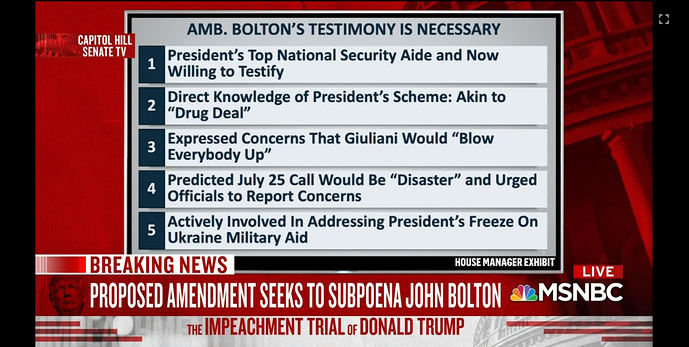
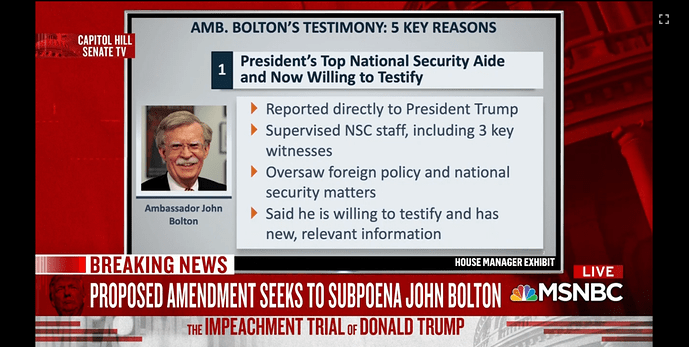
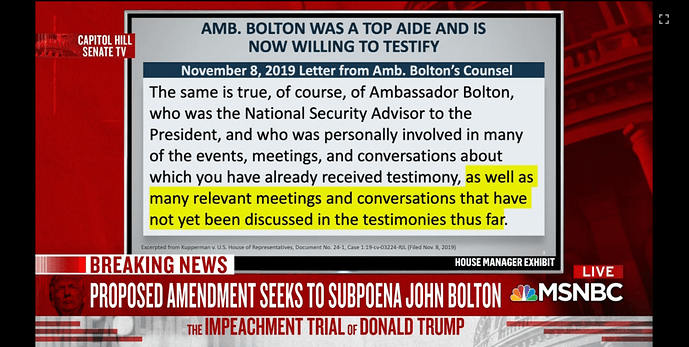
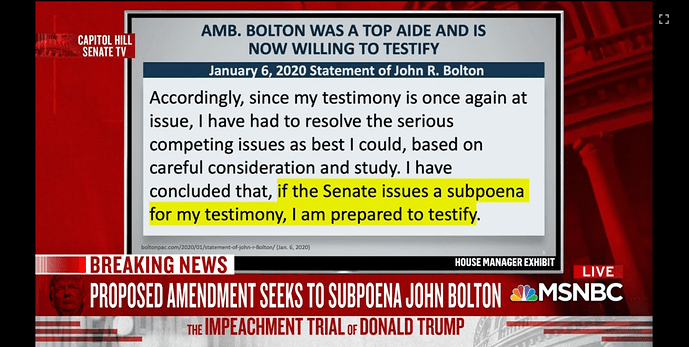
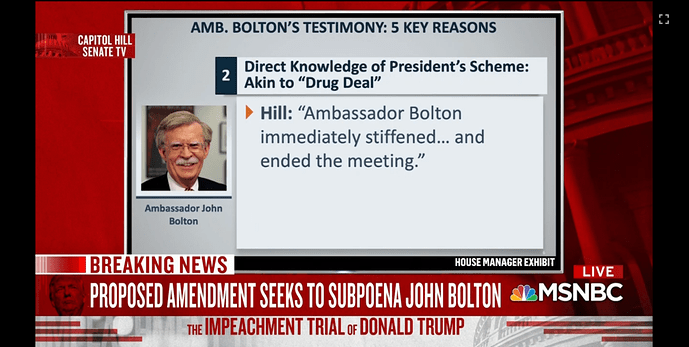
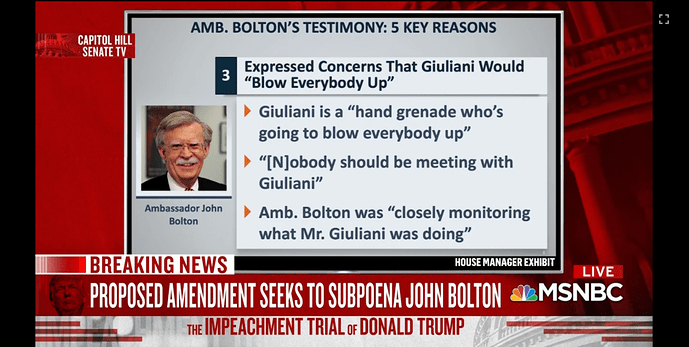
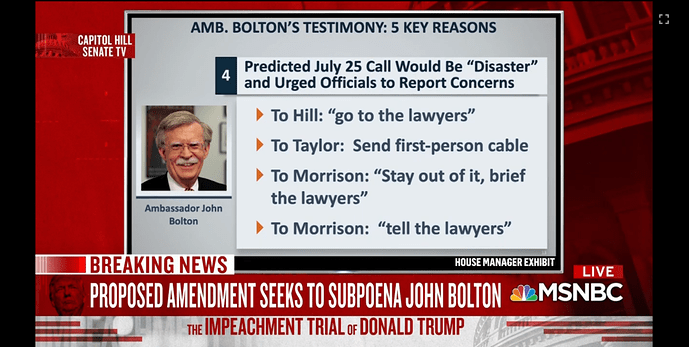
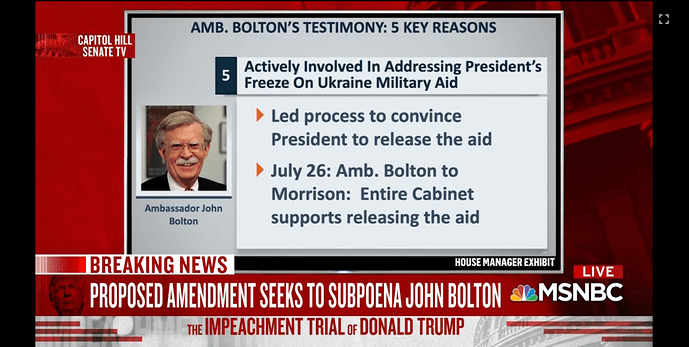
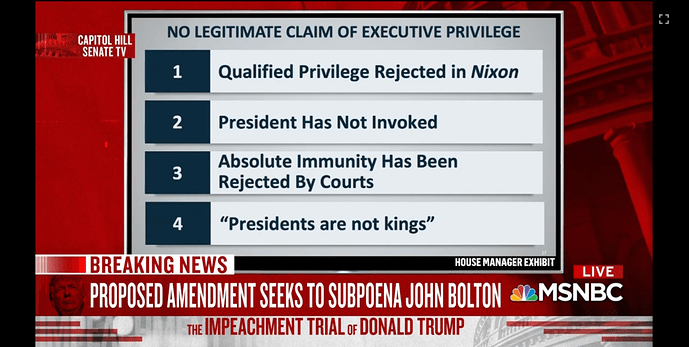
 Rep. Val Demings is a house impeachment manager
Rep. Val Demings is a house impeachment manager